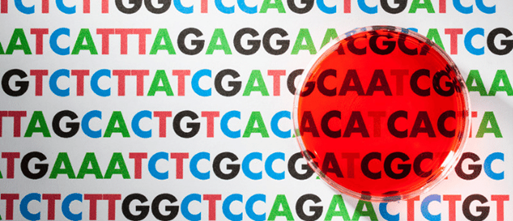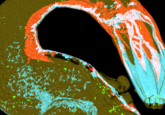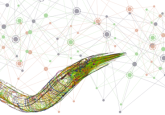New genes discovered in the fight against obesity

Through studies on C. elegans, 14 new genes have been discovered that could be used to develop treatments for obesity.
Eyleen O’Rourke from the University of Virginia’s College of Arts & Sciences (VA, USA) has identified 14 obesity-causing genes and three genes that can prevent it in a study using C. elegans as a model. This study supports a growing body of evidence that indicates obesity is not just due to lifestyle choices but is also dependant on our genes.
Obesity is a growing epidemic, due in part to the easy availability of high sugar foods and the lack of necessary exercise in everyday life. While carbohydrates and increased fructose intake have been definitively linked to obesity, differing outcomes in weight gain from individuals with the same diet and lifestyle highlight that other factors must be at play.
The regulation of fat storage, how the body turns food into fuel, and the genes that control these functions are other key components that contribute to obesity. O’Rourke and her team followed on from genome-wide association studies (GWAS) that have identified hundreds of genes associated with obesity, examining them in a C. elegans model.
As the obesity and COVID-19 pandemics collide, new research presents a possible vehicle to advance obesity treatment.
O’Rourke explained the need to follow up the GWAS studies, stating that, “we know of hundreds of gene variants that are more likely to show up in individuals suffering obesity and other diseases. But ‘more likely to show up’ does not mean causing the disease. This uncertainty is a major barrier to exploit the power of population genomics to identify targets to treat or cure obesity. To overcome this barrier, we developed an automated pipeline to simultaneously test hundreds of genes for a causal role in obesity. Our first round of experiments uncovered more than a dozen genes that cause and three genes that prevent obesity”.
The study tested 293 genes associated with obesity by GWAS using high throughput in vivo RNAi screening for causality. These genes were screened in two different groups of the C. elegans models, one fed with a regular diet and one a high-fructose diet. This testing was supported by automation and supervised machine learning.
The study showed that 17 of the genes studied affected obesity in the models. 14 obesity-causing genes were discovered and three were shown to be preventative. Further examination revealed that knockdown of the three preventative genes leads to an increase in lifespan and neuro-locomotory function in the worms.
These results provide a clear list of causative genes for further examination in higher-order models and reveal potential therapeutic targets for anti-obesity drugs, a development that is, “urgently needed to reduce the burden of obesity in patients and the healthcare system,” according to O’Rourke.






